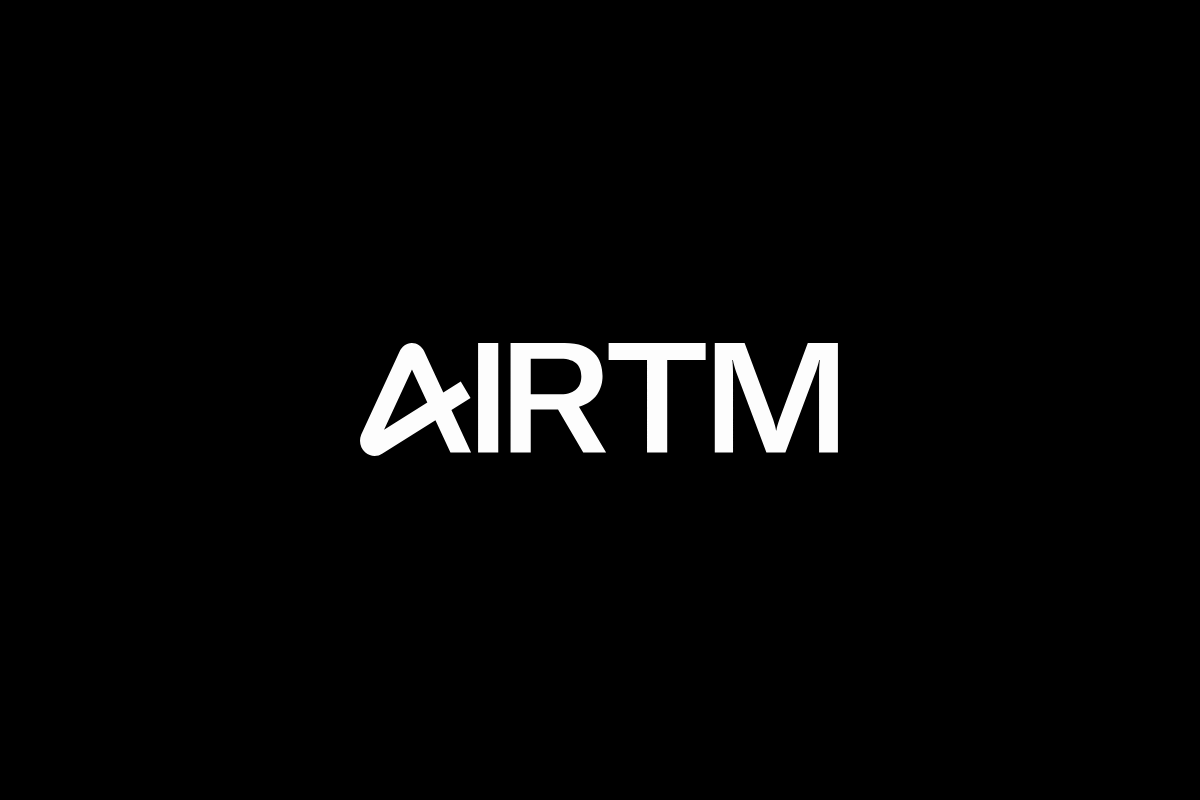Fintech
How EU’s latest AML laws impact HNWIs and property ownership

The introduction of the new AML laws in Europe signifies a pivotal shift for high net worth individuals (HNWIs). Renowned for their substantial wealth, these individuals now find themselves under intensified scrutiny.
The essence of this change lies not merely in identifying these affluent clients but in gaining an in-depth understanding of their financial pathways – the origins and destinations of their substantial funds. This rigorous scrutiny aims to erect a barrier against the insidious world of illegal activities such as money laundering.
For HNWIs, this regulatory overhaul translates into a more intricate compliance landscape, demanding a higher degree of documentation and thoroughness. While this increased scrutiny might initially seem burdensome, it heralds a new era of transparency, fostering a financial ecosystem that is both clean and trustworthy.
On the flip side, banks are compelled to upgrade their operational readiness. They are tasked with the critical role of dissecting their wealthy clients’ financial backgrounds, a process that necessitates a delicate balance between thoroughness and respect for privacy. Here, technology emerges as a pivotal ally.
Cutting-edge software and compliance solutions are set to revolutionize these background checks, making them not only more efficient but also more precise. This synergy between technology and regulatory compliance is not just about adherence to laws; it’s about sculpting a financial realm where wealth coexists with trust. For both HNWIs and banks, adapting to these new norms is not just crucial; it’s foundational for a future where integrity forms the cornerstone of the financial sector.
Europe’s latest AML laws mark a significant shift in property ownership transparency. Post-January 1, 2014, property owners are mandated to disclose the real, or ‘beneficial’, owners. This legislative move is a robust stance against the clandestine masking of property ownership through intricate layers of companies or intermediaries. The ultimate objective? To dismantle the shelters that harbor illegal undertakings like money laundering.
This regulatory evolution mandates businesses and property owners to maintain a precise and accessible record of ownership details, ready for inspection by authorities. Moreover, this transparency is not just a mandate but a stride towards integrity in business and property transactions. The disclosure norms also empower journalists and civil society entities, introducing an additional layer of scrutiny and accountability.
In essence, these reforms are not just about transparency; they are about fostering a marketplace where clarity is paramount, significantly fortifying the barriers against crime.
A critical component of Europe’s revamped AML statutes revolves around the imposition of thresholds on cash transactions, a move strategically aimed at combating financial crimes. For SMEs, this introduces a paradigm shift in transaction monitoring and reporting. Transactions exceeding €10,000 are now spotlighted, necessitating meticulous reporting – a mandate that encapsulates not just the corporate giants but SMEs as well.
Even for transactions that don’t hit the €10,000 mark but hover between €3,000 and €10,000, vigilance is paramount. SMEs are now the custodians of due diligence, tasked with the responsibility of decoding the origins and legitimacy of these transactions. While this might seem daunting, it essentially boils down to a culture of meticulous record-keeping and an acute understanding of the regulatory landscape.
These laws are not mere regulatory hoops to jump through; they are protective bulwarks shielding the economy and businesses from the threats posed by illicit financial streams. By aligning with these regulations, SMEs don’t just evade legal repercussions; they contribute significantly to a broader, more consequential crusade against financial crime.
The advent of custom rule-building in compliance processes marks a transformative phase, especially for SMEs. The new AML regulations underscore that generic solutions are obsolete. Businesses are incredibly diverse, with each entity characterized by its unique transaction patterns, customer profiles, and risk landscapes. Custom rules empower businesses to channel their focus on pertinent aspects, ensuring a compliance process that is both effective and efficient.
Flagright’s innovative technology exemplifies this trend, enabling businesses to set bespoke parameters for transaction monitoring. This could range from flagging transactions of certain magnitudes to those originating from specific geographical locales, particularly relevant under the new cash transaction thresholds. This bespoke approach not only guarantees compliance but also amplifies operational efficiency.
Moreover, in the realm of customer due diligence, the prowess to tailor compliance processes allows businesses to agilely navigate the evolving regulatory waters. Whether it’s verifying the identity of HNWIs or tracking the beneficial ownership of properties, technology-powered custom rules deliver a compliance strategy that is both precise and flexible. This not only mitigates the risk of non-compliance but also circumvents potential penalties.
In conclusion, embracing technology that facilitates custom rule-building is not merely about regulatory conformity. It positions businesses, particularly SMEs, at the vanguard of compliance innovation. By partnering with entities like Flagright, businesses are not just aligning with current regulations; they are gearing up for a future marked by rigorous compliance demands, ensuring their place at the forefront of a dynamically evolving regulatory landscape.
Source: Fintech Global
The post How EU’s latest AML laws impact HNWIs and property ownership appeared first on Hipther Merch.
Fintech
Fintech Pulse: Your Daily Industry Brief (Chime, ZBD, MiCA)

As we close out 2024, the fintech industry continues to deliver headlines that underscore its dynamism and innovation. From IPO aspirations to groundbreaking regulatory milestones, today’s updates highlight the transformative power of fintech partnerships, regulatory evolution, and disruptive technologies. Here’s what you need to know.
Chime’s Quiet Step Toward Public Markets
Chime, the U.S.-based financial technology startup best known for its digital banking services, has taken a significant step by filing confidential paperwork for an initial public offering (IPO). As one of the most valuable private fintechs in the U.S., Chime’s move could potentially signal a renewed appetite for fintech IPOs in a market that has been cautious following fluctuating valuations across the tech sector.
With a valuation that reportedly exceeded $25 billion in its last funding round, Chime’s IPO could set a new benchmark for the industry. Observers note that its strong customer base and revenue growth may make it an appealing choice for investors seeking to capitalize on the digital banking boom. However, the timing and success of the IPO will depend on broader market conditions and the regulatory landscape.
Source: Bloomberg
ZBD’s Pioneering Achievement: EU MiCA License Approval
ZBD, a fintech company specializing in Bitcoin Lightning network solutions, has made history by becoming the first to secure an EU MiCA (Markets in Crypto-Assets Regulation) license. This landmark approval by the Dutch regulator positions ZBD at the forefront of compliant crypto-fintech operations in Europe.
MiCA, which aims to harmonize the regulatory framework for crypto-assets across the EU, has been a focal point for industry players aiming to establish legitimacy and expand their offerings. ZBD’s achievement not only validates its operational rigor but also sets a precedent for other fintech firms navigating the evolving regulatory landscape.
Industry insiders view this as a strategic advantage for ZBD as it broadens its footprint in Europe. By leveraging its regulatory approval, the company can accelerate its product deployment and establish trust with institutional and retail users alike.
Source: Coindesk, PR Newswire
The Fintech-Credit Union Synergy: A Blueprint for Innovation
The convergence of fintechs and credit unions continues to reshape the financial services ecosystem. Collaborative initiatives, such as the one highlighted in the recent partnership between fintech innovators and credit unions, are proving to be a potent force in delivering tailored financial solutions.
This “dream team” approach allows credit unions to leverage fintech’s technological expertise while maintaining their community-focused ethos. Key areas of collaboration include digital payments, personalized financial management tools, and enhanced loan processing capabilities. These partnerships not only enhance member engagement but also enable credit unions to remain competitive in an increasingly digital-first financial environment.
Industry analysts emphasize that such collaborations underscore a broader trend of traditional financial institutions embracing fintech-driven solutions to bridge service gaps and foster innovation.
Source: PYMNTS
Tackling Student Loan Debt: A Fintech’s Mission
Student loan debt remains a pressing issue for millions of Americans, and a Rochester-based fintech aims to offer relief through its cloud-based platform. This innovative solution is designed to simplify loan management and provide borrowers with actionable insights to reduce their debt burden.
The platform’s features include repayment optimization tools, personalized financial education, and seamless integration with loan servicers. By addressing the complexities of student loan management, this fintech is empowering borrowers to make informed decisions and achieve financial stability.
As the student loan crisis continues to evolve, solutions like this highlight the critical role fintech can play in addressing systemic financial challenges while fostering financial literacy and inclusion.
Source: RBJ
Industry Implications and Takeaways
Today’s updates underscore several key themes shaping the fintech landscape:
- Regulatory Milestones: ZBD’s MiCA license approval exemplifies the importance of regulatory compliance in unlocking growth opportunities.
- Strategic Partnerships: The collaboration between fintechs and credit unions demonstrates the value of combining technological innovation with traditional financial models to drive customer-centric solutions.
- Market Opportunities: Chime’s IPO move reflects a potential revival in fintech public offerings, signaling confidence in the sector’s long-term prospects.
- Social Impact: Fintech’s ability to tackle systemic issues, such as student loan debt, showcases its role as a force for positive change.
The post Fintech Pulse: Your Daily Industry Brief (Chime, ZBD, MiCA) appeared first on News, Events, Advertising Options.
Fintech
SPAYZ.io prepares for iFX EXPO Dubai 2025

Leading global payments platform SPAYZ.io has confirmed it will be attending iFX EXPO Dubai 2025 on 14 to 16 January. Exhibiting at Stand 64 at Trade Centre Dubai, SPAYZ.io’s team of professionals will be on hand providing live demonstrations of its renowned payment services for payment providers. Attendees will also receive exclusive insight into SPAYZ.io’s plans for 2025 alongside early early access to its upcoming plans for the new year.
SPAYZ.io delivers a host of payment solutions that leverage the latest technological innovations and open access to the fastest growing emerging markets across Africa, Europe and Asia. Over the past year, there has been huge demand for its Open Banking and local payment method services, alongside bank transfers, mass payouts, online banking and e-wallets.
Yana Thakurta, Head of Business Development at SPAYZ.io commented: “We look forward to once again participating at iFX Dubai to expand our network of partners and clients. It’s a fantastic way to kick off the year, connecting with thousands of industry leaders from FOREX platforms to trading companies, and everything in between.
“Our key goal for iFX Dubai EXPO 2025 is to expand our portfolio of solutions and geographies. We’re using this as an opportunity to partner with like-minded entities who share our ambition to provide payment solutions that are truly global.”
Come meet SPAYZ.io’s team at the Trade Centre Dubai at Stand 64. You can also book a meeting slot with a member of a team.
The post SPAYZ.io prepares for iFX EXPO Dubai 2025 appeared first on News, Events, Advertising Options.
Fintech
Airtm Enhances Its Board of Directors with Two Strategic Appointments

Airtm, the most connected digital dollar account in the world, is proud to announce the addition of two distinguished industry leaders to its Board of Directors: Rafael de la Vega, Global SVP of Partnerships at Auctane, and Shivani Siroya, CEO & Founder of Tala. These appointments reflect Airtm’s commitment to innovation and financial inclusion as the company enters its next phase of growth.
“We are thrilled to welcome Rafael and Shivani to Airtm’s Board of Directors,” said Ruben Galindo Steckel, Co-founder and CEO of Airtm. “Their unique perspectives and proven track records will be invaluable as we continue scaling our platform to empower individuals and businesses in emerging markets. Together, we’ll push the boundaries of financial inclusion and innovation to create a more connected and equitable global economy. Rafael and Shivani bring a wealth of experience and strategic insight that will strengthen Airtm’s mission to connect emerging economies with the global market.”
Rafael de la Vega, a seasoned leader in fintech global partnerships and technology innovation, is currently the Global SVP of Partnerships at Auctane. With a proven track record of delivering scalable, impactful solutions at the intersection of fintech, innovation, and commerce, Rafael’s expertise will be pivotal as Airtm continues to grow. “Airtm has built a platform that breaks down barriers and opens up opportunities for people in emerging economies to connect to global markets. I am excited to contribute to its growth and help further its mission of fostering financial inclusion on a global scale,” said Rafael.
Shivani Siroya, CEO and Founder of Tala, is a pioneer in financial technology, renowned for empowering underserved communities through access to credit and essential financial tools. Her leadership in leveraging data-driven innovation aligns seamlessly with Airtm’s vision of creating more equitable financial opportunities. “Empowering underserved communities has always been at the core of my work, and Airtm’s mission resonates deeply with me. I’m thrilled to join the Board and work alongside such a dynamic team to expand access to financial tools that truly make a difference in people’s lives,” said Shivani.
The post Airtm Enhances Its Board of Directors with Two Strategic Appointments appeared first on News, Events, Advertising Options.
-

 Fintech6 days ago
Fintech6 days agoFintech Pulse: Your Daily Industry Brief (Synapse, Shenzhen Institute, Visa, AutomatIQ, MeridianLink)
-

 Fintech5 days ago
Fintech5 days agoFintech Pulse: Your Daily Industry Brief (Revolut, Bestow, Advyzon, Tyme Group, Nubank)
-

 Fintech3 days ago
Fintech3 days agoFintech Pulse: Your Daily Industry Brief (Chime, ZBD, MiCA)
-

 Fintech6 days ago
Fintech6 days agoAsian Financial Forum returns as region’s first major international financial assembly in 2025
-

 Fintech6 days ago
Fintech6 days agoNASDAQ-Listed LYTUS Appoints Visionary Leader Sai Guna Ranjan Puranam as COO (Lytus Healthcare) and Group CTO (Lytus Technologies) to Revolutionize Healthcare and Technology
-

 Fintech PR2 days ago
Fintech PR2 days agoAccording to Tickmill survey, 3 in 10 Britons in economic difficulty: Purchasing power down 41% since 2004
-

 Fintech4 days ago
Fintech4 days agoAirtm Enhances Its Board of Directors with Two Strategic Appointments
-

 Fintech PR2 days ago
Fintech PR2 days agoPresident Emmerson Mnangagwa met this week with Zambia’s former Vice President and Special Envoy Enoch Kavindele to discuss SADC’s candidate for the AfDB




